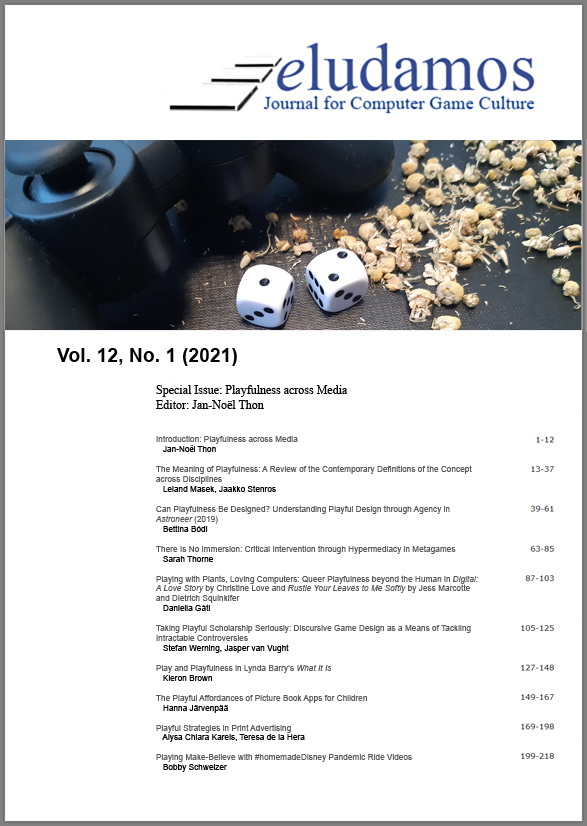Playing with Plants, Loving Computers: Queer Playfulness beyond the Human in Digital: A Love Story by Christine Love and Rustle Your Leaves to Me Softly by Jess Marcotte and Dietrich Squinkifer
DOI:
https://doi.org/10.7557/23.6364Keywords:
alterity, digital environments, interspecies love, nonhumans, posthumanity, queer indie games, utopiaAbstract
This article argues that queer playfulness sets up a utopian relationality based on desire and vulnerability between human players and their nonhuman Others. Specifically, using the indie games Rustle Your Leaves to Me Softly by Jess Marcotte and Dietrich Squinkifer and Digital: A Love Story by Christine Love as case studies, the article reconfigures the notion of queer playfulness from its more familiar conceptualizations in queer game studies as residing less in willful resistance and agentive subversion than in the willing subjection of the playing self to the play and pleasure of the nonhuman Other—in the case of these games, plants and computers. Thus, queerness manifests as a precarious form of desire that does not seek to and cannot master its object. Ultimately, the article posits queer playfulness as a radical decentering of the human subject and the playing ego in favor of a humble, vulnerable, and contingent form of relationality between humans and their unassimilable Others.







